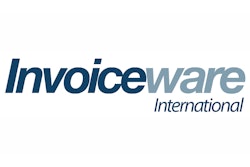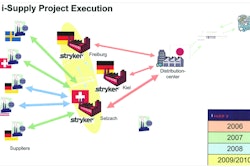
Companies operating in Latin America face strict regulations mandating electronic invoicing and fiscal reporting. Errors or non-compliance can cost businesses severely in the form of business disruptions and fines, from loaded trucks sitting idle as they wait for the government-approved XML invoice to millions in penalties for inaccurate reporting.
What started as an e-invoicing requirement in Brazil in 2007 quickly expanded across the region and is now entering new aspects of business operations, including logistics and human resource processes. At the beginning of 2015, compliance is mandated in seven countries, including Mexico, Argentina, Chile, Ecuador, Peru and Uruguay. With Colombia also on the brink of enacting compliance legislation, business operations in this region are increasingly complex and only continue to get more so as individual country mandates change annually.
While compliance in Latin America is unavoidable, companies do face a choice in how they see these complexities. Are these mandates a challenge to be overcome? Or are they an opportunity to be leveraged? In this article, we will examine what your business must do, as well as what it can do to simplify and streamline business operations based on the required government standardization.
Compliance: The Cost of Business
Compliance is simply a cost of doing business in Latin America. Companies face two options: Either integrate the systems necessary to comply with the government reporting and approval processes, or face millions of dollars in fines and costly business disruptions. Proper compliance measures help businesses avoid:
- Shipping delays. e-Invoices act as a bill of lading in many countries and companies cannot ship unless an approved invoice is physically on the truck. Companies can be shut down for days due to invoicing errors, or even minor information technology (IT) issues that prevent transmission or printing of the invoice. Brazil is taking this measure a step further as it pilots a radio frequency identification (RFID) project to track trucks in real time based on the Nota Fiscal (Brazil’s e-invoicing requirement) documentation of their shipments. This adds increased visibility for companies and the government alike, but also increased opportunity for error.
- Refused collections. Customers will not pay an invoice and sometimes decline goods (actually physically turning the truck around at the gate) if an invoice is not 100 percent accurate. The standardization of invoices allows the receiving company to check the invoice in real time for errors, often even before the goods arrive.
- Tax reporting errors. Latin American governments rely on value-added tax (VAT) collections, implementing e-invoicing requirements in part to ensure that companies are paying taxes accurately. Businesses can only take VAT deductions that are backed by accurate and registered XML invoices, and penalties for deducting incorrectly are stern—75 to 150 percent of the tax value, which can quickly add up into the millions.
At a minimum, companies need to update their IT systems regularly to maintain compliance and avoid these issues, but manual compliance can be costly. Dedicated resources are required to monitor regulation changes, interpret the mandates into business systems requirements and implement new IT processes to comply with government mandates. Outsourced local vendors are available to manage much of this process, but overseeing multiple vendors can take almost as much time as maintaining compliance internally. Instead, proactive companies are moving toward a regional solution that standardizes compliance throughout Latin America.
The Hidden Benefits of Compliance
Companies that see compliance only as a challenge to be conquered are missing an opportunity to improve supply chain management and liquidity. The standardization required by Latin American governments means that companies already have the necessary systems in place to streamline their operations. Further, maintaining a regional compliance solution ensures that companies can take advantage of these efficiencies throughout their regional operations. For example:
- With strict data requirements and verification processes, these mandates ensure that your purchases and payments are 100 percent accurate—that you receive the exact goods purchased and that your vendors provide the exact services described.
- This increased transparency also allows you to uncover any potential discrepancies or issues quickly. While the U.S. government, through enforcement of the Foreign Corrupt Practices Act, used this data to uncover covert business deals and accounting fraud, companies can use it to prevent violations.
- Companies can use these XML invoices to simplify the inbound receiving process, turning hours of manual data entry into a single scan and click process. Since the XML invoice is on the truck and can even arrive before the shipment, companies are assured that the invoice matches the merchandise, lowering the costs associated with receiving up to 40 percent.
- These mandates created an ideal environment for supply chain financing, requiring that companies have all of the systems and data in place that they need to enhance liquidity. Since all invoices are standardized, clearly stating approval for payment, invoices can be cleared for immediate payment, in some cases as soon as the goods arrive.
Which Outlook Will Your Company Choose?
Companies operating in Latin America have two choices. They can be reactionary, throwing money into updating their compliance systems with each new mandate and update, or they can see the opportunity that these mandates provide. In the past, the vast majority of companies were completely reactionary. As companies move from single-country solutions to regional platforms, they are streamlining their business operations, and seeing improved return on investment (ROI) and cash flow opportunities. When companies manage compliance locally, enterprise resource planning (ERP) investments usually go underutilized, but those who make their ERP the system of record to avoid reporting issues and penalties are able to align governance, control and accounting with compliance, eliminating the risk of data being manipulated outside of the system and improving the ROI on their ERP investment.
The most progressive companies are going beyond the cost savings provided by moving to a regional platform that works directly within their ERP to take advantage of the enhanced processes that standardization offers. So where do you fall on the spectrum—reactionary, compliant or truly proactive? If you don’t like your current position, now is the time to reevaluate your compliance measures, as Brazil, Mexico, Peru, Uruguay and Colombia all have large changes to their mandates approaching.
Scott Lewin is the CEO of Invoiceware International.
















